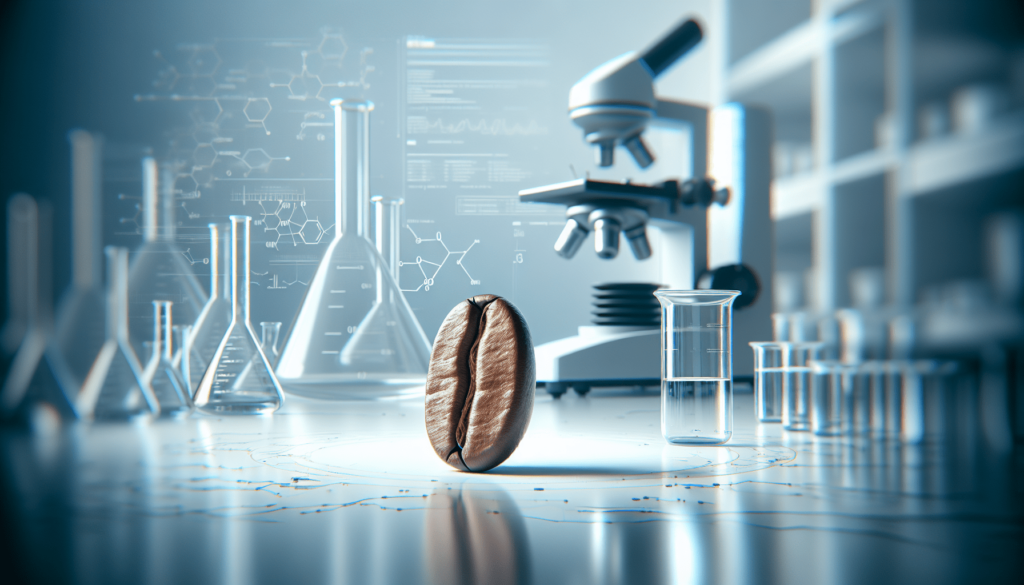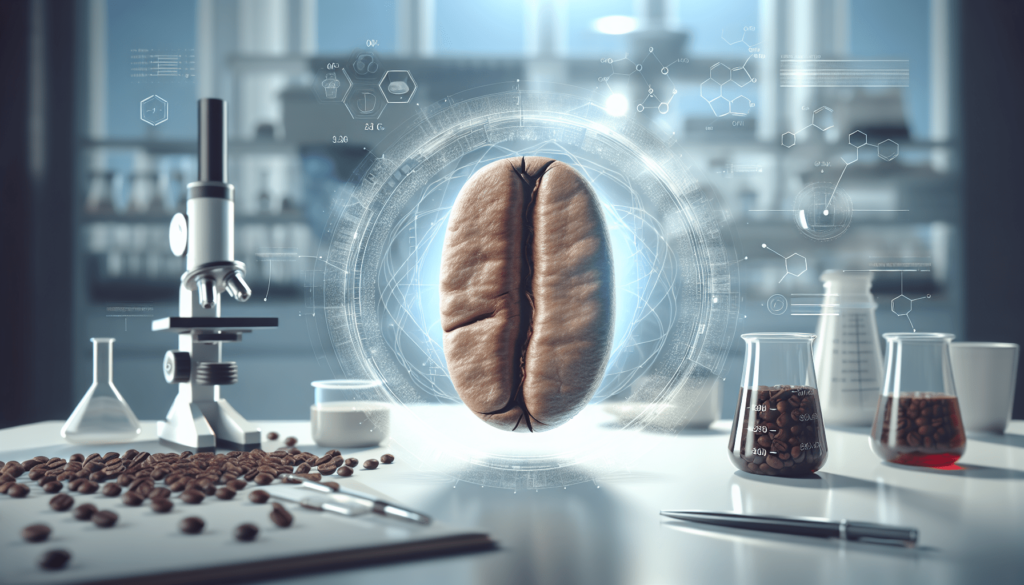Have you ever wondered how your daily cup of coffee might affect your sperm quality? You’re not alone. Coffee is one of the most consumed beverages worldwide, and it’s often the go-to drink for millions of people who need a daily energy boost. But could this popular beverage be influencing something as crucial as sperm quality? Let’s explore this fascinating topic in detail.
A Quick Overview: Caffeine and Its Effects
Caffeine is the main bioactive ingredient in coffee. Once ingested, it acts as a stimulant, waking you up and possibly making you more alert. But caffeine affects your body on a biological level, and this includes your reproductive system. Understanding how caffeine interacts with bodily functions can provide insight into how coffee consumption might affect sperm quality.
The Functions of Caffeine
Caffeine operates mainly by blocking adenosine receptors in the brain, leading to increased alertness. It also stimulates the central nervous system and boosts the release of certain neurotransmitters like dopamine. While these effects might be well-known, caffeine’s impact is far-reaching and can affect various organs and bodily functions, including reproductive health.
Bioavailability of Caffeine
It’s important to understand that not everyone metabolizes caffeine at the same rate. Genetic differences can make some people fast metabolizers of caffeine, whereas others process it much slower. This individual variability can affect how caffeine influences different aspects of health, including sperm quality.
Understanding Sperm Quality
Before we delve into how coffee affects sperm, it’s crucial to understand what constitutes healthy sperm. Sperm quality is often evaluated based on several parameters: count, motility, morphology, and DNA integrity.
Sperm Count
Sperm count refers to the number of sperm present in a given volume of semen. A low sperm count can make it challenging to conceive and is an essential factor in male fertility.
Sperm Motility
Motility refers to the movement of sperm. For fertilization to occur, sperm need to swim through the female reproductive tract to reach the egg. Poor motility can significantly hinder this process and affect fertility.
Sperm Morphology
Morphology looks at the shape and structure of sperm. Abnormalities in size or shape can impair the sperm’s ability to fertilize an egg. Typically, only a small percentage of sperm are normal in shape, but this percentage can affect overall fertility.
DNA Integrity
The DNA within sperm cells must be intact for successful fertilization and embryo development. Damage to the DNA can lead to issues in these areas, leading to fertility problems or developmental defects.

The Role of Antioxidants in Sperm Health
Sperm cells are highly susceptible to oxidative stress, which can damage their DNA, affecting their morphology and motility. Antioxidants play a crucial role in protecting sperm from oxidative damage. Coffee is rich in antioxidants, but whether these benefits extend to sperm health is something researchers are still investigating.
What Research Says About Coffee and Sperm Quality
Scientific studies on the relationship between coffee consumption and sperm quality have yielded mixed results. Some research indicates a negative impact, while others suggest no significant effect, and some even highlight potential benefits. Let’s break down the different findings.
Negative Impact
Several studies have suggested that excessive coffee consumption—typically defined as more than three to four cups per day—can negatively affect sperm quality. Here’s what some of the findings indicate:
Study Findings
| Study | Details |
|---|---|
| Study A | Observed a decline in sperm concentration and motility among men who consumed more than three cups of coffee daily. |
| Study B | Found that high caffeine intake was associated with an increase in DNA fragmentation in sperm cells. |
| Study C | Indicated that men who drank more than four cups of coffee a day had lower overall sperm counts. |
Neutral Impact
Other studies have found no significant relationship between moderate coffee consumption and sperm quality. These studies often define moderate consumption as one to two cups per day:
Study Findings
| Study | Details |
|---|---|
| Study D | Showed no significant difference in sperm motility and concentration between moderate coffee drinkers and non-coffee drinkers. |
| Study E | Found that even moderate caffeine intake did not result in adverse effects on sperm morphology. |
Potential Benefits
Surprisingly, some studies have indicated that moderate coffee consumption could have potential benefits for sperm quality:
Study Findings
| Study | Details |
|---|---|
| Study F | Revealed that antioxidants present in coffee could reduce oxidative stress, potentially protecting sperm DNA integrity. |
| Study G | Suggested an improvement in sperm motility among men who consumed one to two cups of coffee daily. |

The Role of Lifestyle Factors
It’s crucial to consider that coffee consumption is often part of a broader lifestyle, which can include factors like diet, exercise, and stress levels. These lifestyle factors can also significantly influence sperm quality:
Diet and Nutrition
A balanced diet rich in vitamins and minerals is essential for maintaining good sperm quality. Nutrients like zinc, selenium, and folic acid are particularly important for sperm health. Coffee, in moderation, might complement a healthy diet due to its antioxidant properties, but excessive consumption can be counterproductive.
Physical Activity
Regular physical activity can improve overall health, including reproductive health. While moderate exercise has been linked to improved sperm quality, excessive physical exertion, especially without proper nutrition, can lead to oxidative stress, which negatively affects sperm.
Stress Levels
High levels of stress can lead to hormonal imbalances, which can adversely affect sperm quality. Caffeine is known to influence stress hormones, such as cortisol, which can have a trickle-down effect on sperm health. Managing stress through relaxation techniques, adequate sleep, and potentially cutting down on excessive coffee consumption can be beneficial.
Debunking Common Myths
Several myths surround the topic of coffee and sperm quality. Let’s clarify some of them:
Myth 1: All Caffeine-Containing Beverages Affect Sperm Quality the Same Way
While coffee is a common source of caffeine, other beverages such as tea, energy drinks, and soda also contain caffeine. The impact on sperm quality can vary depending on the source and amount of caffeine. For instance, energy drinks often contain higher caffeine levels and added sugars, which could have a different impact compared to coffee.
Myth 2: Decaffeinated Coffee Is Completely Safe
Decaffeinated coffee does contain some amount of caffeine, although it’s significantly lower than regular coffee. However, the chemicals used in the decaffeination process could have other health implications, though more research is required in this area.
Myth 3: You Must Quit Coffee to Maintain Good Sperm Quality
Moderation is key. Cutting down your coffee intake to a moderate level, generally one to two cups per day, may help mitigate any potential negative effects while still allowing you to enjoy your favorite beverage.
Practical Tips for Coffee Drinkers
If you’re a coffee lover concerned about your sperm quality, here are some practical tips to balance your love for coffee with maintaining good reproductive health:
Limit Your Intake
Consider limiting your coffee consumption to one to two cups per day. This moderation can help minimize any potential adverse effects while still providing some antioxidants.
Choose Quality Over Quantity
Opt for high-quality coffee beans that are organically grown. Organic coffee is less likely to contain harmful pesticides and chemicals that could negatively affect overall health.
Combine with a Balanced Diet
Ensure your diet is rich in fruits, vegetables, whole grains, and lean proteins. This balanced approach provides essential nutrients that support sperm health, counteracting any minor negative impacts from caffeine.
Stay Hydrated
Coffee is a diuretic and can lead to dehydration if consumed in excess. Ensure you drink sufficient water throughout the day to maintain hydration levels, which is crucial for overall health, including reproductive health.
Final Thoughts
The relationship between coffee consumption and sperm quality is complex and influenced by various factors, including the amount of coffee consumed, individual biological differences, and broader lifestyle habits. While excessive coffee consumption can potentially harm sperm quality, moderate intake might not have significant adverse effects and could even offer some benefits due to its antioxidant properties.
Understanding and mitigating the potential impacts by making informed lifestyle choices can help you maintain good reproductive health without entirely giving up your favorite cup of coffee. Remember, moderation and a holistic approach to lifestyle are key in balancing your coffee habit with maintaining optimal sperm quality.
